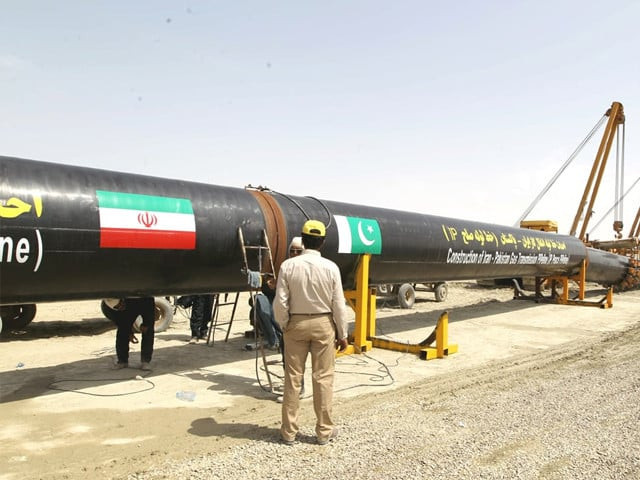As Pakistan grapples with a persistent energy crisis, exacerbated by years of mismanagement and insufficient infrastructure, it finds itself at a critical juncture where strategic decisions are imperative for its economic stability and social welfare. Amidst this challenge, recent developments regarding the Iran-Pakistan (IP) gas pipeline project underscore the delicate balance between national sovereignty and external pressures, particularly from the United States.
The US government's stance, articulated through the State Department's cautionary remarks against the IP pipeline project, reflects a familiar pattern of interference in the internal affairs of sovereign nations. While Washington's concerns about potential sanctions are valid within the framework of its foreign policy, it is essential to recognise that Pakistan, as a democratic state, retains the autonomy to pursue policies that serve the interests of its citizens.
At the heart of the matter lies Pakistan's pressing energy needs. The country faces chronic power shortages, hindering industrial productivity, impeding economic growth, and affecting the daily lives of millions. In this context, the IP gas pipeline presents a viable solution to alleviate Pakistan's energy woes. Leveraging Iran's abundant natural gas resources offers a pragmatic approach to diversifying Pakistan's energy mix, reducing reliance on costly imports, and enhancing energy security.
Planning Minister Ahsan Iqbal's proactive engagement with Iranian officials highlights the urgency and potential of regional cooperation in addressing Pakistan's energy deficit. His advocacy for effective road-rail transit routes and the revival of cross-border cargo services demonstrates a commitment to exploring comprehensive solutions beyond traditional energy infrastructure.
Furthermore, the proposal to harness Iran's vocational and technical training mechanisms underscores a holistic approach to tackling unemployment, particularly in Balochistan. By empowering the youth with market-relevant skills, Pakistan can foster economic inclusivity and mitigate social unrest, thereby addressing underlying factors contributing to regional instability.
The significance of strong bilateral ties between Pakistan and Iran cannot be overstated. Beyond economic cooperation, mutual collaboration holds the promise of fostering regional peace and stability. Both nations recognise the potential of strategic infrastructure projects, such as the Chabahar and Gwadar ports, in facilitating trade and connectivity not only within the region but also extending to Central Asia and beyond.
In this context, the interference of external actors, particularly the United States, risks undermining the progress and sovereignty of Pakistan's decision-making processes. While international partnerships and alliances are essential for global cooperation, they must be grounded in mutual respect and recognition of each nation's right to pursue policies that best serve its interests.
Pakistan's democracy affords its government the mandate to prioritise the welfare of its citizens and address pressing socio-economic challenges. As such, external pressures aimed at dissuading legitimate partnerships, such as the IP gas pipeline project, should be met with resolute adherence to national interests and sovereignty.
Moreover, it is incumbent upon the international community, including the United States, to support Pakistan's efforts in achieving energy security and economic prosperity. Rather than impeding progress through sanctions or diplomatic coercion, constructive engagement and cooperation offer a more viable path towards shared objectives of regional stability and development.
In conclusion, Pakistan stands at a pivotal moment in its quest for energy security and economic resilience. The Iran-Pakistan gas pipeline project represents a tangible opportunity to address longstanding energy deficiencies and unlock the full potential of the nation's resources. As Pakistan navigates these challenges, it is imperative that it upholds its sovereignty and autonomy in decision-making, free from external interference. The international community, including the United States, should respect Pakistan's democratic processes and support its endeavours to secure a prosperous future for its people.



COMMENTS (1)
Comments are moderated and generally will be posted if they are on-topic and not abusive.
For more information, please see our Comments FAQ